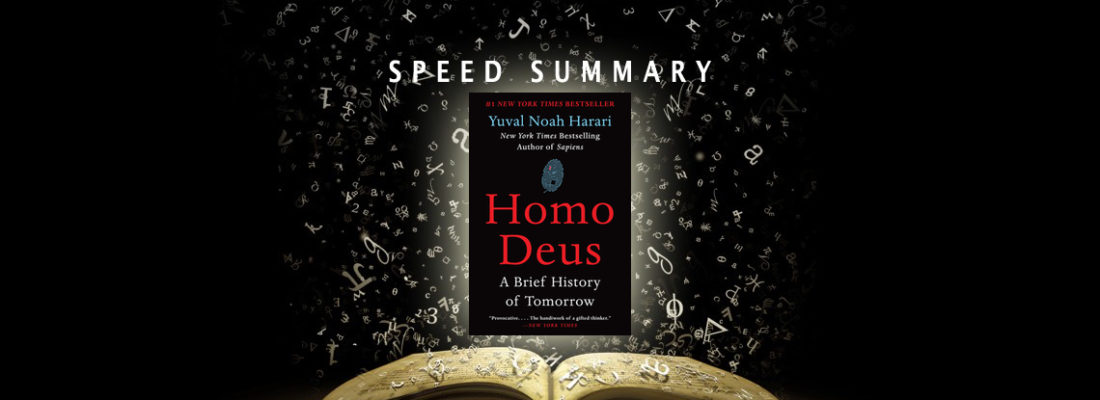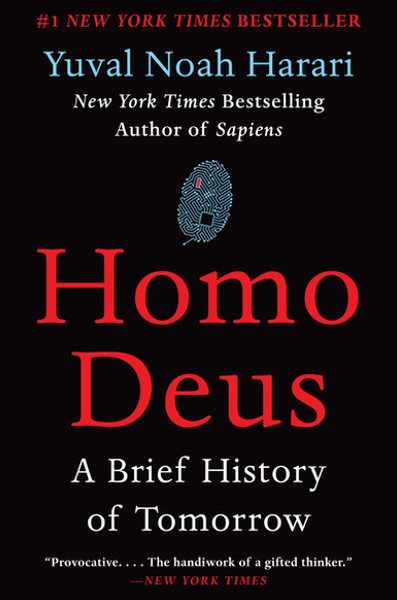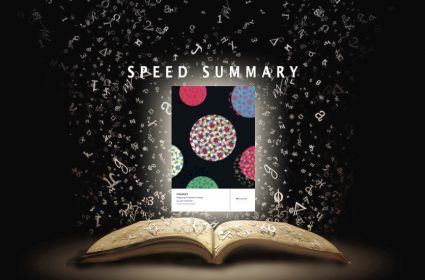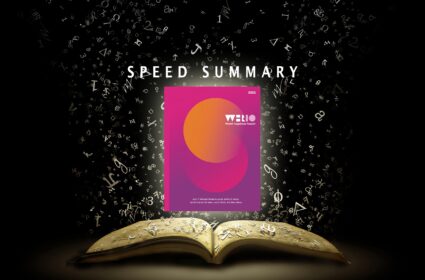Speed Summary: Homo Deus – A Brief History of Tomorrow


- Homo Deus: A Brief History of Tomorrow
- Author: Yuval Noah Harari
- Publisher: Harper
- Publication: 2016
What’s next for the human race? In Homo Deus – A Brief History of Tomorrow, historian and author of the bestselling Sapiens, Yuval Noah Harari turns to the past to predict the future.
Extrapolating from 70,000 years of human history (think of it as trend spotting on an epic scale), Harari’s predictions are dark, dystopian and disturbing. But they have won fans among big beasts in industry, politics and science including Barack Obama, Mark Zuckerberg, Bill Gates, Daniel Kahneman and Jared Diamond.
Harari makes a number predictions, but here are the key ones that grabbed our attention.
- Humans will become Gods. Homo Sapiens (wise humans) is evolving into Homo Deus (god humans) with god-like mastery over our environment and the ability to create (and destroy) life.
- Wellness and Wellbeing will Dominate. With problems of human survival (pandemics, famine and violence) solved, humans will increasingly focus on the god-like pursuits of chasing immortality (wellness) and enduring happiness (wellbeing). Google’s Calico offshoot has the modest mission to solve the problem of immortality.
- The Rise of the “Useless Class”. The cost of upgrading the human condition will be expensive and reserved for a tiny elite. Meanwhile, the masses will see jobs disappear as they are replaced by ever more effective and ever more efficient technology. Unlike the lumpen proletariat of yesteryear, the new “useless class” will not even be able to sell their labour.
- The Death of Humanism. The dominant religion of the early 21st Century – humanism (celebrating human intelligence, human experience (sensations, emotions and thoughts) and human values) – will be eroded by advances in science and technology. Specifically, the human sciences will challenge the human superiority and human exceptionalism that is implicit in humanism, including erroneous beliefs in the uniqueness of human sentience (feelings), human sapience (reason) and free-will. We are just animals with a God-complex.
- For Harari, the implications for human democracy, human freedom and human rights will be significant. Think of the challenges to humanist politics (the voter knows best), humanist economics (the customer is always right), humanist aesthetics (beauty is in the eye of the beholder), humanist ethics (if it feels good – do it!) and humanist education (think for yourself!).
- The Rise of Techno-Humanism. In their pursuit of immortality and happiness, humans will turn to technology to upgrade themselves through biological (genetic) engineering , cyborg (bionic) engineering and computer (AI) engineering.
- AI Sapience beats Human Sentience. “The Great Decoupling” of sentience (our ability to feel) and sapience (our ability to reason) will result in AI technology that is smarter and more intelligent than humans. Non-conscious but highly intelligent algorithms will know us better than we know ourselves, and we will increasing rely on AI algorithms to inform and guide us in life, love and work.
- I’m in Love with your Algorithms. Just as AI understands humans as sets of algorithms (formulae) to predict and explain behaviour, humans will follow suit. Individuals will not longer be seen as irreducible and indivisible selves, but as divisible ‘dividuals’ made up of constellations of ‘if this, then that’ style algorithms that code for personality, passions and profile. Think Match.com on steroids, or the Quantified Self mantra of “self-knowledge through numbers”.
- Dataism becomes the New Religion. The religion of Humanism will be replaced by a new religion “Dataism”, as we replace a homo-centric world view in favour of a data-centric world view. Already with adepts in Silicon Valley, Dataism celebrates life as data processing, individuals and organisations as algorithms, and the value of a human life in terms of its capacity to transform experience into data.
- The Internet of All Things (AKA The Matrix). If humankind is indeed a single data-processing system, then our output will be the creation of a new and even more efficient data-processing system, called the Internet-of-All-Things. Once this mission is accomplished, Homo sapiens will vanish.
- The End of Humanity. The next step in evolution will ultimately see humans transform from semi-evolved simians into pure information and in doing so break free from their carbon-based biological chains.
The BG Take
Homo Deus is audacious, speculative and thought-provoking. And for Brand Genetics, an agency that believes that the future is human, Homo Deus is a direct challenge to our faith in human strengths, human values and human experience.
As Harari concludes, are organisms really just algorithms, and is life really just data processing? Is intelligence more valuable that consciousness (our subjective experience of sensations, emotions and thoughts)? Can non-conscious but highly intelligent algorithms really know us better than we know ourselves? These are open questions that will be decided as a matter of fact, rather than as a matter of opinion.
Right now however Homo Deus has two big practical implications for us at Brand Genetics.
- We should focus our insight and innovation on human wellness and wellbeing – it’s where research money will increasingly be invested (prediction 2).
- We should be decoding the algorithms of human behaviour. You don’t need to drink the “Dataist” Koolaid to realise that the big metaphor today for understanding humans is data processing. If human behaviour can be understood and mapped algorithmically as step-by-step processes and rules, then we should be offering this service (think “ethnomethodology” reinvented).
Perhaps most significantly, Homo Deus helps solve the crisis of credibility in qualitative research today. In a data-driven and data-fetishized world where numbers rule and words walk, what is the purpose of qualitative research? (apart from informing, illustrating, and interpreting quantitative research).
Homo Deus provides qualitative researchers with an answer, and a powerful new raison-d’être. Leave quantitative data to the ‘quants’ in quantitative research. Instead, we ‘qualis’ can focus on decoding what’s really important – the underlying algorithms that describe, pattern and predict human behaviour. Now you know.




